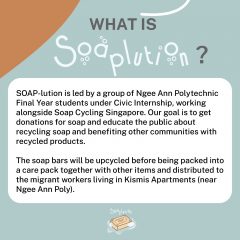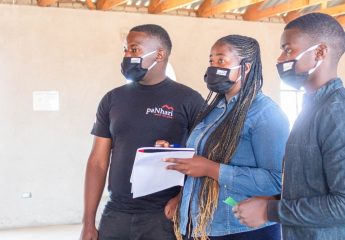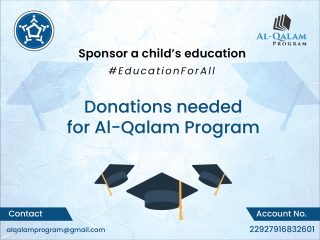Updates from 2020 MacJannet Prize Winners
Thursday, October, 8th, 2020 News
Service-Learning Programme, Ngee Ann Polytechnic (Singapore)
-V Prema, Lead Catalyst, Office of Service-Learning, Ngee Ann Polytechnic
With the arrival of Covid-19, Ngee Ann Polytechnic (NP) had to quickly pivot to eService-Learning to enable us to continue using Service-Learning (S-L) as a pedagogy within our curriculum. Information sessions were held to guide faculty on re-designing their modules curating projects that could be carried out remotely, while meeting their learning objectives and addressing community partners’ priorities. We were able to carry out more than 20 eService-Learning projects in the April 2020 semester.
Following their civic internship, some of our students embarked on projects to tackle Covid-19 related issues in collaboration with various community partners. A group of students from the October 2019 internship cohort started an Instagram campaign and gathered 20 donated laptops in just over a week. The laptops were then given to children from low-income families for home-based learning during the Covid-19 lockdown period in Singapore. Another team is now running an online campaign, “SOAP-lution,” to solicit donations of soap and other amenities for care packs to be distributed to migrant workers in Singapore.

In the wake of Covid-19, NP’s School of Health Sciences developed a free 40-minute short course, Infection Prevention and Control 101, that offers basic knowledge of how infection spreads, and how to protect oneself and help stop transmission. The original course in English has since been translated into 14 languages in order to help not only Singaporeans but also people in other countries.
“While face-to-face service-learning projects provide a more impactful community engagement experience, there were benefits in carrying out projects remotely. For instance, productivity and efficiency were enhanced with the use of online meeting platforms and tools. We are intentionally planning more eService-Learning projects post Covid-19 and believe they can be viable options as we evaluate the impact with our community partners.” -Joyce Wong, Head, Office of Service-Learning
paNhari Program, University of Zimbabwe
-Donald Bodzo & Phil Mlanda, Co-Founders of the paNhari Program
The Covid-19 pandemic has significantly impacted paNhari’s programming. The nationwide lockdown and travel restrictions in Zimbabwe have limited the mobility of students and changed how students engage with communities. Despite these challenges, students have been determined to explore innovative ways to continue civic engagement activities. Using technology platforms, students have adopted virtual interactions with women and youth in the informal work sector to assess and understand how their livelihoods have been impacted by the pandemic.

Students preparing for a paNhari entrepreneurship workshop
As is the case with most economies, youth and women-led Micro, Small and Medium Enterprises (MSMEs) have been hit the hardest. With the support of the MacJannet Prize, students are now implementing the second phase of an initiative that seeks to support MSMEs by providing tailored entrepreneurship training and small ‘revolving’ loans; the hope is to revive business operations and alleviate short-term economic impacts that have taken a toll on the many businesses that survive from hand-to-mouth. Over the next few weeks, paNhari aims to safeguard vulnerable people’s livelihoods and set foundations for early economic recovery and resilience.
“A key takeaway that I’m experiencing from engaging in the community in Mabvuku is that investment in social capital promotes the simultaneous growth of individuals and their communities with minimal conflicts of interest.”-Lorraine Govera, BSc Honors in Acturial Science, University of Zimbabwe
Al-Qalam Program, National University of Sciences and Technology (Pakistan)
-Maheen Mumtaz, Assistant Manager, Community Service, National University of Sciences and Technology
During the lockdown, the Supreme Court decided to ask the school to not take fees until schools re-open. However, majority of the schools instituted online learning in order to justify continuing school fees. The children supported by Al-Qalam project are mostly in government schools whose online learning was not up to the mark due to the school’s lack of experience with technology. Only some of their households have a stable internet connection or a computer. Still, they’ve needed to pay school fees.

The university closed and volunteers could not move easily around their communities or run a donation campaign. Al-Qalam Program student volunteers took it upon themselves to set up an online donation campaign and through their own networking they helped parents on a case-to-case basis so their children are able to remain in school.
Moreover, volunteers collected new laptops and desktops to donate to families so children could continue with online learning. With the lockdown easing in Pakistan and schools and universities expected to open in September, we hope that the project will be enrolling more children soon. Many families have lost their jobs due to the lockdown and could not afford to send their kids to schools and this project will continue to provide education.